Our vegetables
from the ground!
Chemical-Free
Fresh & Healthy
100% Organic
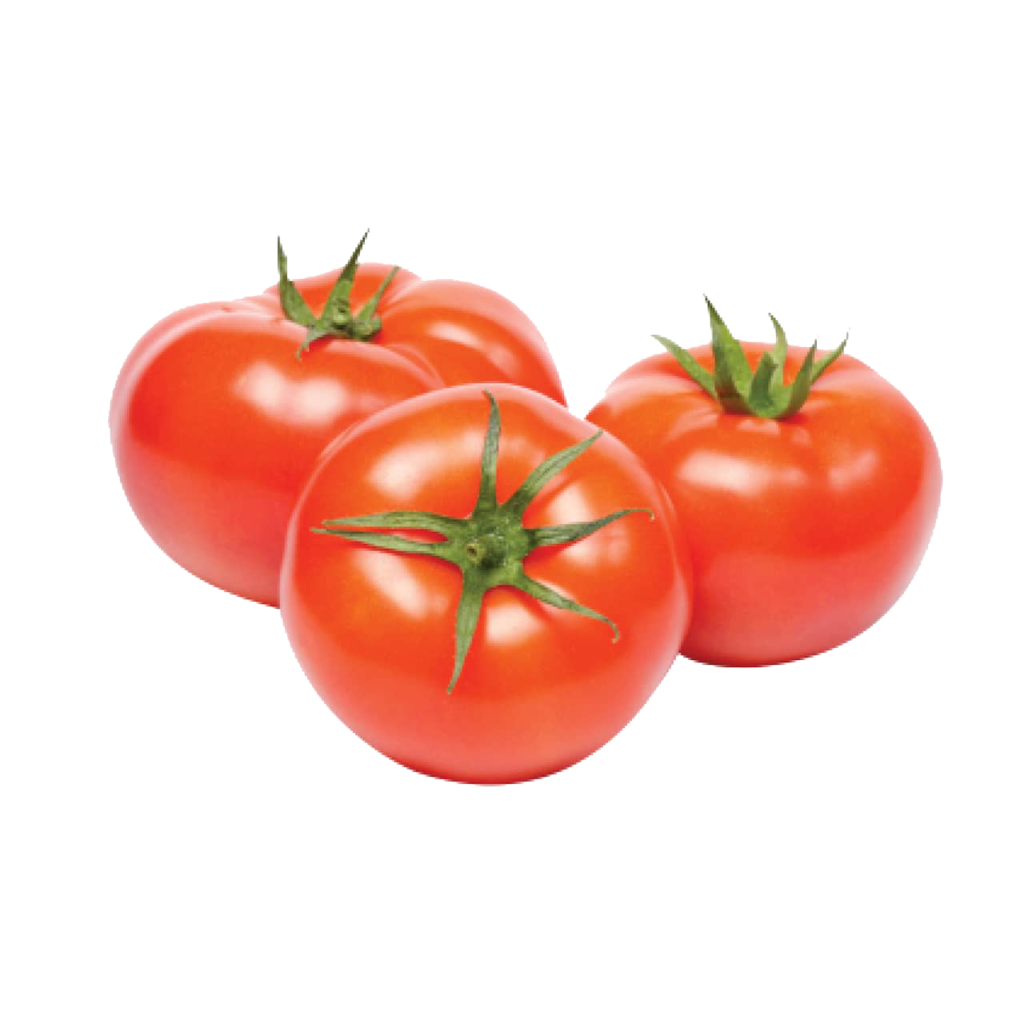
01.
Tomatoes
Including tomatoes in the diet can help protect against cancer, maintain healthy blood pressure, and lower blood glucose in people with diabetes. They are also an excellent source of vitamin C, A, potassium, folate, and vitamin K.
A single tomato can provide about 40% of the recommended daily minimum of vitamin C. In addition, tomatoes also have vitamin A, which supports immunity, vision, and skin health, and Vitamin K, which is good for your bones and potassium, a key nutrient for heart function, muscle contractions, and maintaining healthy blood pressure and fluid balance.
- Tomatoes are a great source of vitamins
- They protect heart health
- They support healthy vision
- They boost digestive health
- They may help fend off diabetes complications
- They can contribute to skin health
- They may help protect against cancer.
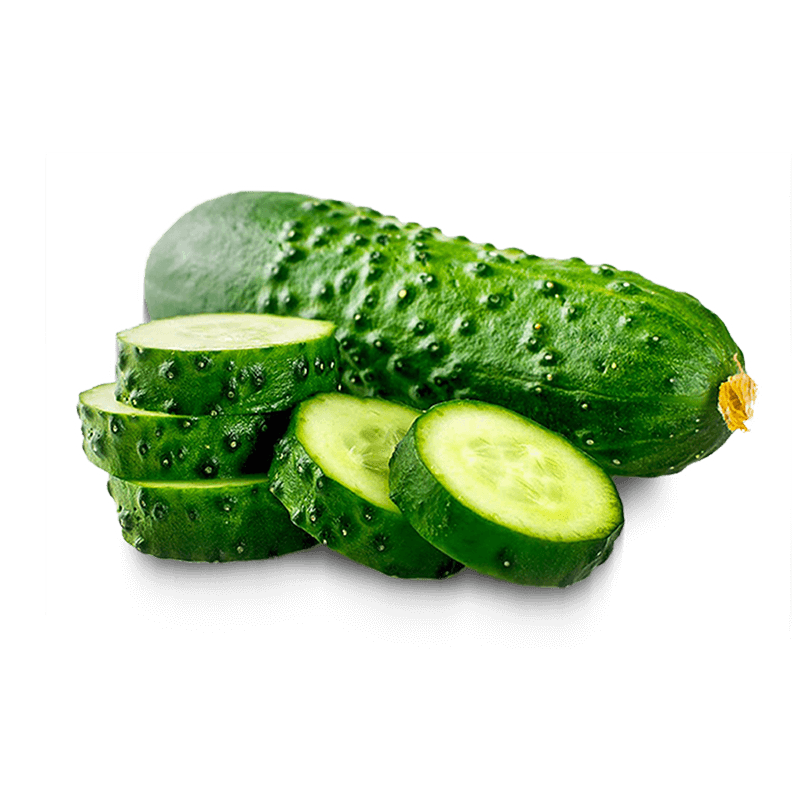
02.
Cucumbers
Cucumber is a member of the Cucurbitaceae family, like squash and various types of melons, including bitter melon.
Cucumber has a mild, refreshing taste and a high water content. They help to relieve dehydration and are pleasant to consume in the summer season.
Cucumbers provide a variety of nutrients and are low in calories, fat, cholesterol and sodium.
Cucumber contains: phosphorus, vitamins A, C, E (alpha tocoherol), B6, B12, choline, betaine, and vitamin K, folic acid, riboflavin, zinc, iron, calcium, magnesium, phosphorus, manganese, omega 3 fatty acids and 6.
- They are anti-inflammatory
- They can regulate your digestion
- They are good for your blood sugar
- They can improve bone health
- They might prevent hair loss
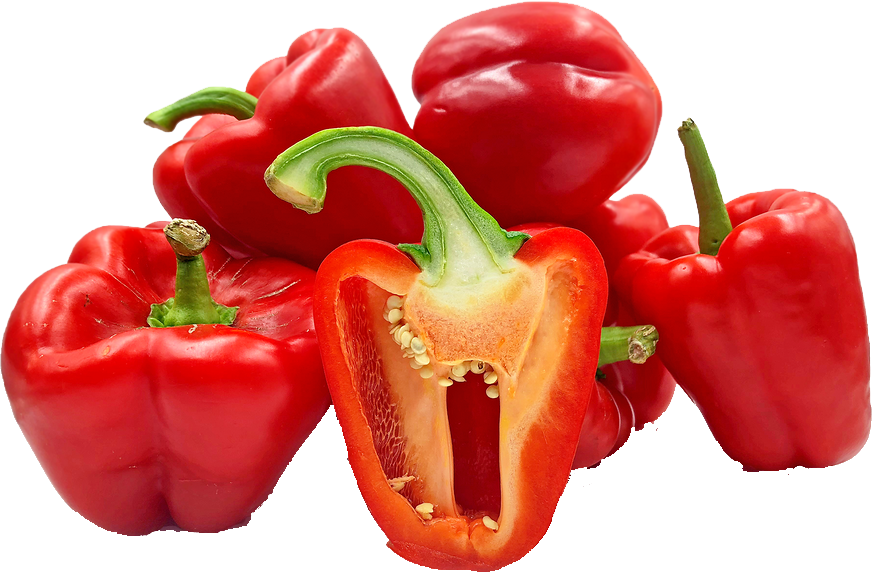
03.
Peppers
Pepper is the best source of vitamin C, especially if raw, it can help in the treatment of many diseases and problems. Its components in our body act as antidepressants and antiseptics.
Peppers generally do not have many calories, so they are a great vegetable if you want to lose weight. They are rich in minerals, vitamins, and other useful substances.
This type of vegetable has more vitamin C than lemons and oranges and is highly recommended for strengthening immunity and fighting the flu.
Peppers also contain a significant amount of vitamin B1 and B2. They also contain vitamin E, to which anti-cancer properties are attributed and vitamin A, while from minerals they include potassium, phosphorus and iron. They contain about 80% water.
- They can reduce the risk of cataracts and macular degeneration
- They can reduce the likelihood of anaemia
- They can protect against certain chronic diseases
- They can delay age-related memory loss
- They can have blood-sugar lowering effects
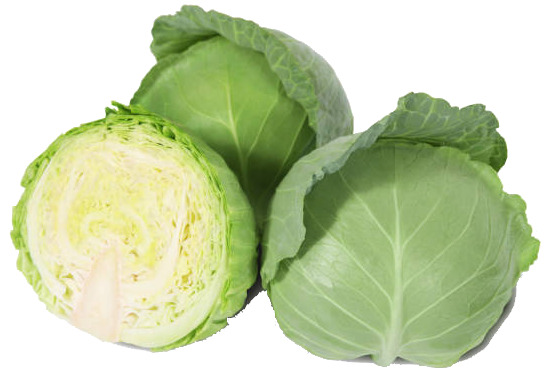
04.
Cabbages
White cabbage or cabbage is a herbaceous plant, with rolled leaves, green on the outside and white on the inside, and its origin is Morocco, Asia and Europe. Cabbage is an annual herb that grows not too high above the ground, although it may look a lot like lettuce, it actually belongs to the Brassica family of vegetables, which includes broccoli, cauliflower and kale. Cabbage has a variety of shapes and colors, including red, purple, white and green, and its leaves can be either dry or smooth.
Cabbage has many nutritional properties that are essential for the human body such as: protein, vitamins, thiamine (B1), riboflavin (B2), niacin (B3), pantothenic acid (B5), vitamin (B6), folate (B9), vitamin C, minerals, calcium, iron, magnesium, phosphorus, potassium, sodium, magnesium, zinc.
In addition, cabbage is rich in fiber and contains powerful antioxidants. Antioxidants protect the body from damage caused by free radicals.
Cabbage is especially high in vitamin C, a powerful antioxidant that may protect against heart disease, certain cancers and vision loss.
- They are packed with vitamin C
- They help improve digestion
- They can help lower cholesterol levels
- They are an excellent source of vitamin K
- They may lower blood pressure
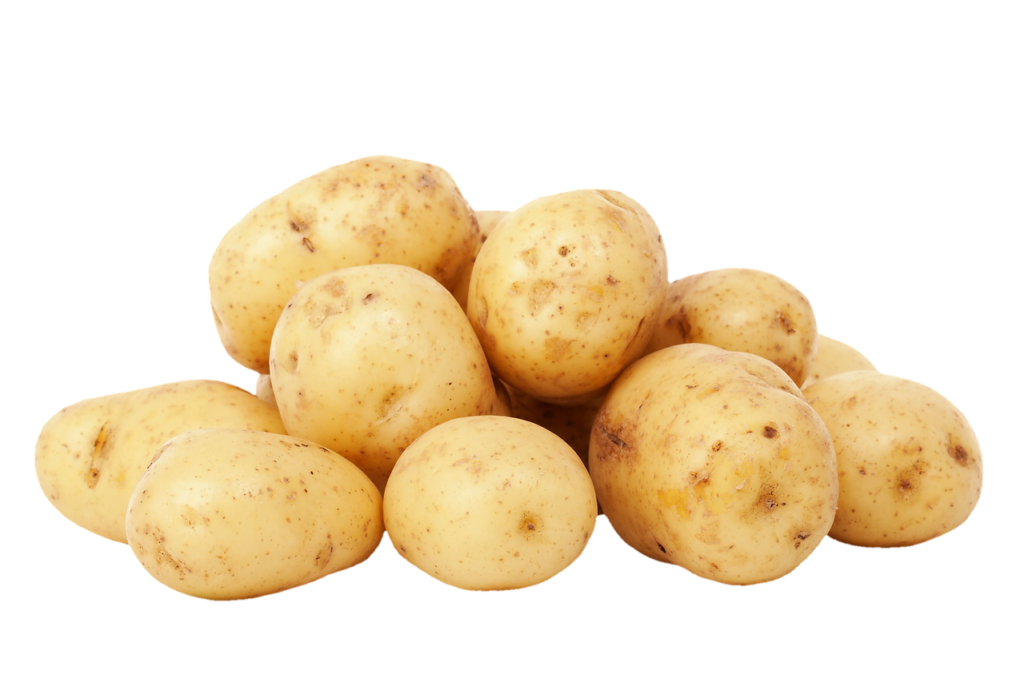
05.
Patatoes
Potatoes were first cultivated in the Andes in South America 10,000 years ago, while the Spanish introduced them to Europe at the beginning of the 16th century. Potatoes are now grown in 160 countries around the world, with 1,500–2,000 different varieties that vary in color, size, and nutritional content.
Potatoes contain important nutrients and when cooked, the human body benefits in different ways.
The many health benefits of potatoes make them one of the most special vegetables. Potatoes are an excellent source of vitamin C, potassium, fiber, B vitamins copper, tryptophan, manganese and even lutein. They also work wonders for curbing inflammation in the body and boosting immunity and healthy blood circulation.
- They can improve blood sugar control
- They can improve digestive health
- They are naturally gluten-free
- They provide 45 percent of the recommended daily value of vitamin C
- They contain 2 grams of fiber
- They are a good source of vitamin B6
facts
Vegetables give your child energy, vitamins, anti-oxidants, fibres and water.
They help protect your child against chronic diseases later in life, including heart disease, stroke and some cancers. A healthy diet means eating plenty of vegetables, plus a wide variety of foods from the other main food groups.

